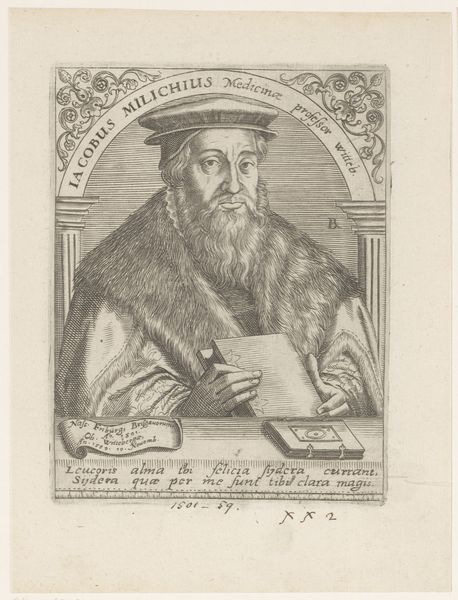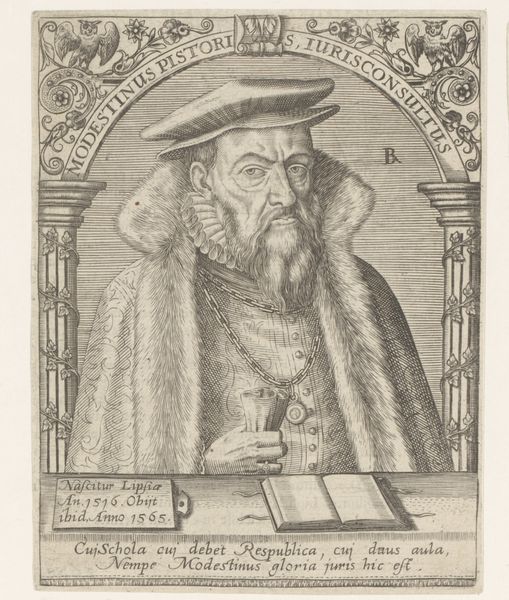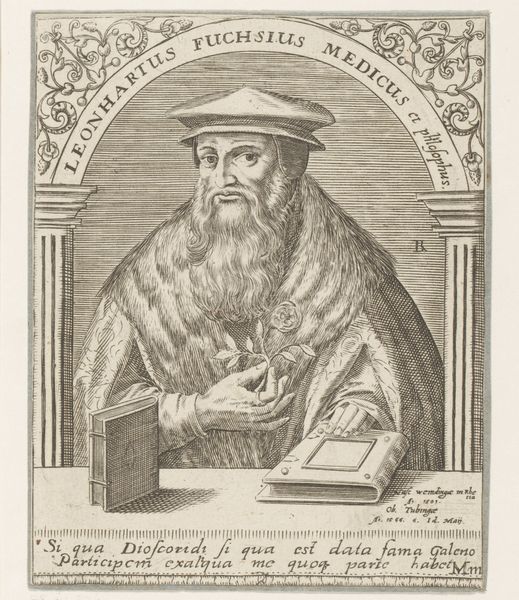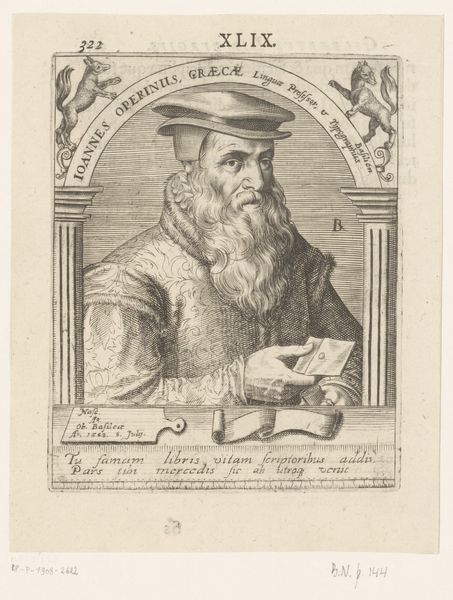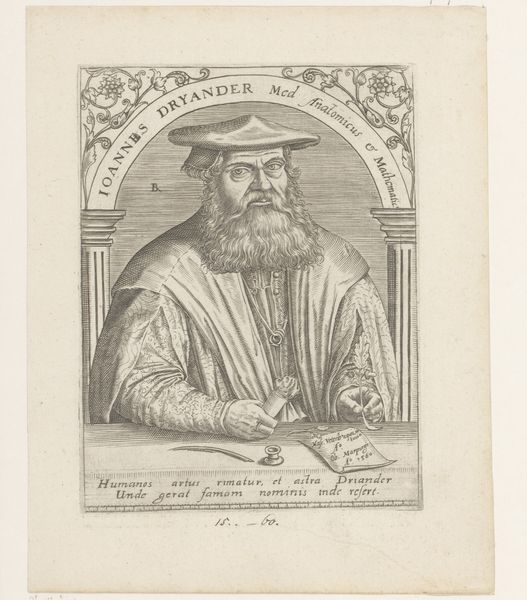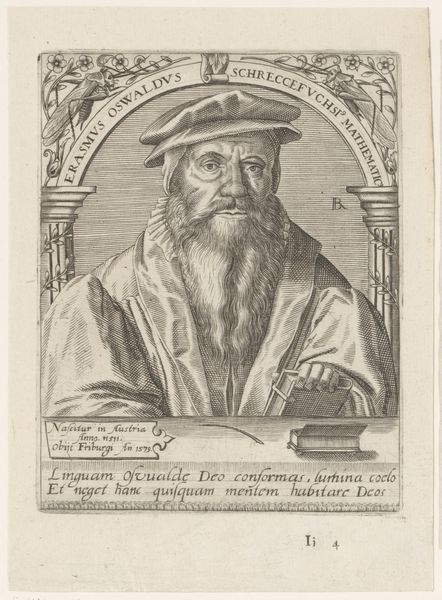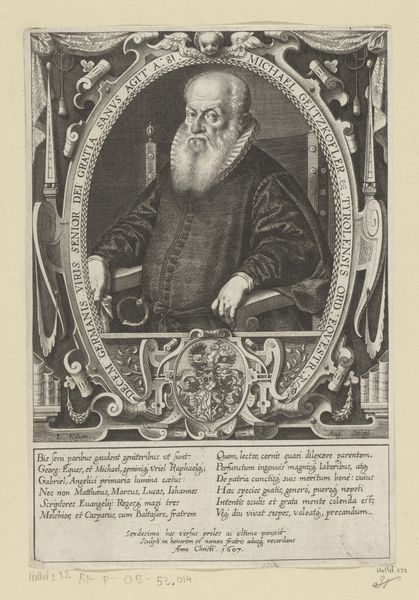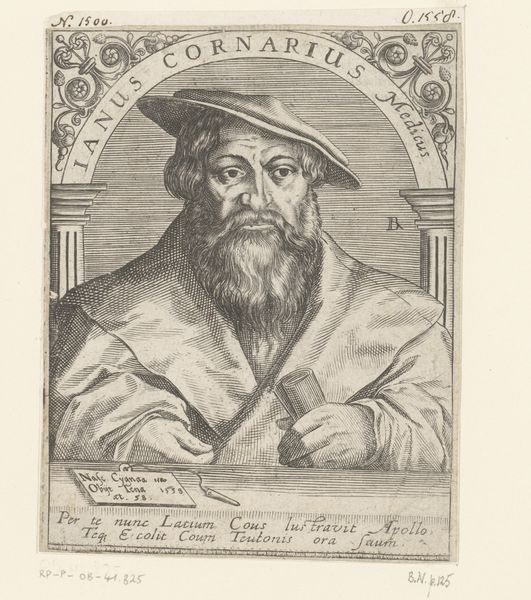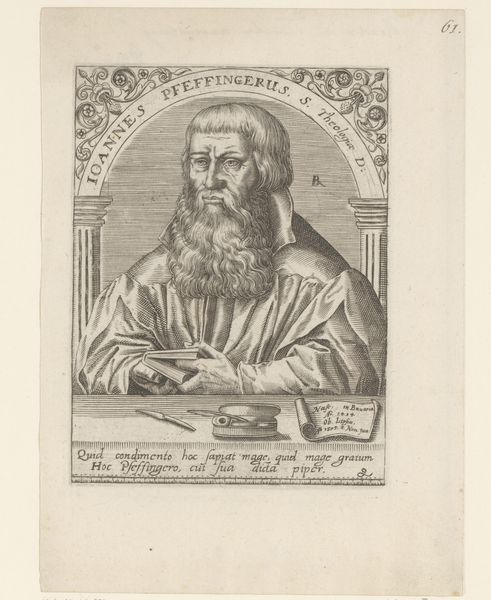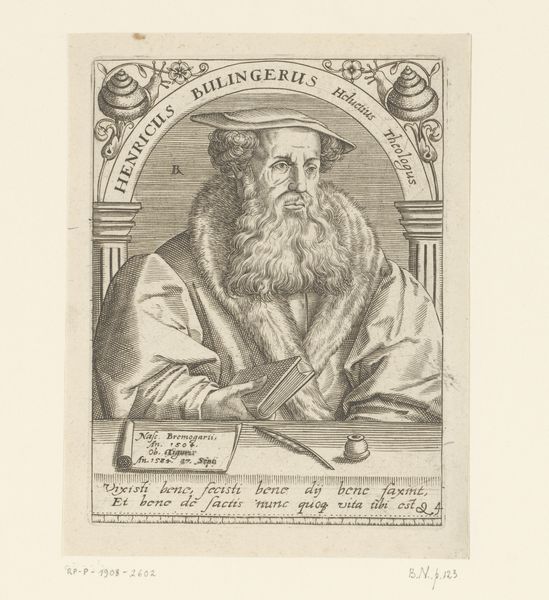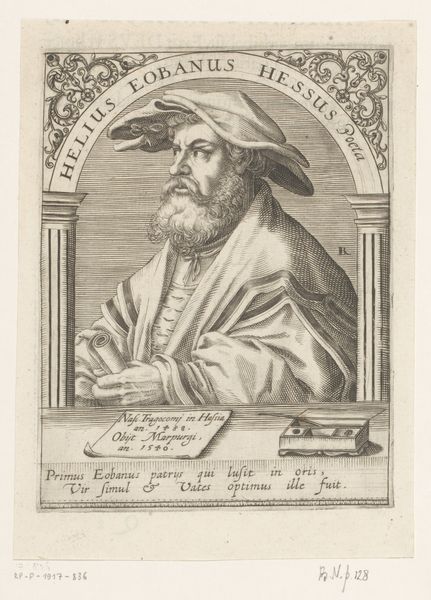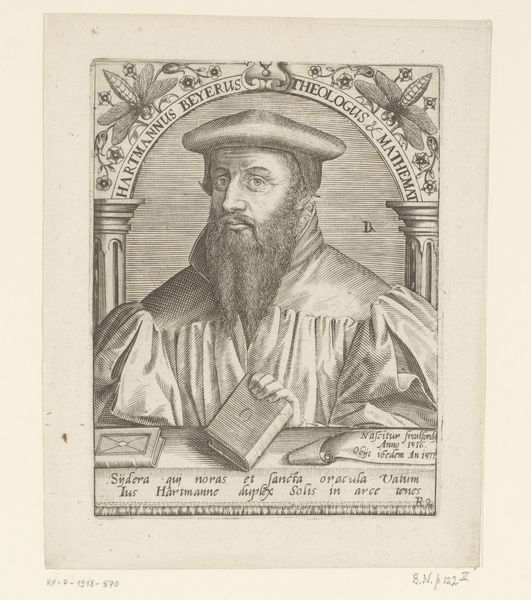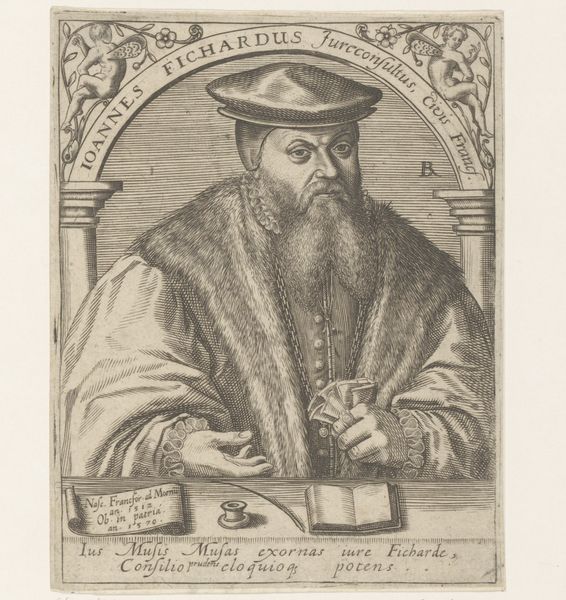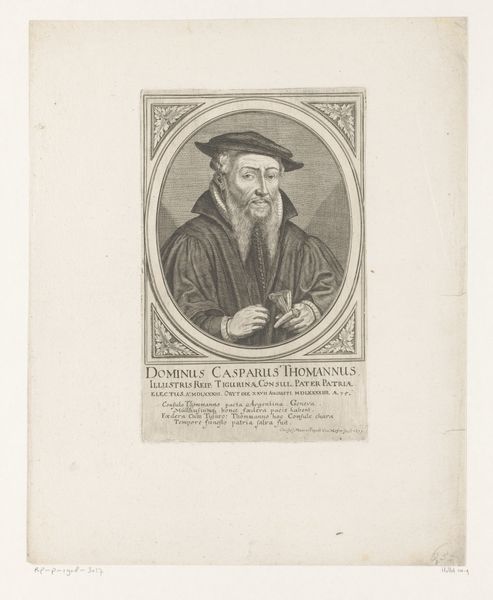
print, engraving
#
portrait
# print
#
history-painting
#
engraving
Dimensions: height 143 mm, width 107 mm
Copyright: Rijks Museum: Open Domain
Robert Boissard created this print of Burkhard Mithoff in the 16th century using etching and engraving. The image’s distinct visual quality emerges from the artist’s manipulation of metal. Look closely, and you’ll see how the varying densities of etched lines create shadow and volume. Boissard has used hatching techniques to render texture and form. Consider, for example, the differing densities of hatching that give the fur trim of Mithoff’s robes its depth, and the crisp precision of his facial features. The very nature of printmaking suggests a world of mass production. Yet, each print required considerable skill, careful labor and time. This intermediate status – somewhere between unique handmade object and mass-produced image – gives prints a fascinating position in the history of art and visual culture. They allowed for the relatively inexpensive distribution of images to a wide public. By emphasizing materials and making, we can understand the print not just as a portrait, but as a product of skilled labor and technological innovation.
Comments
No comments
Be the first to comment and join the conversation on the ultimate creative platform.
